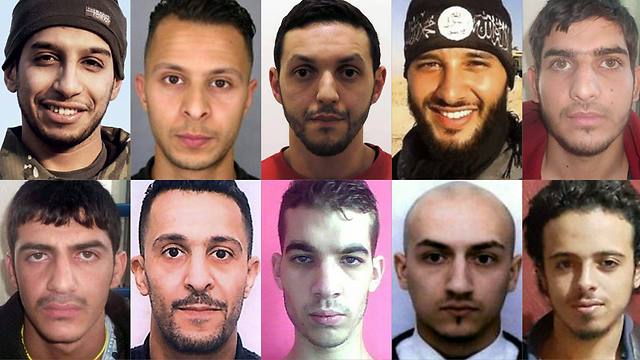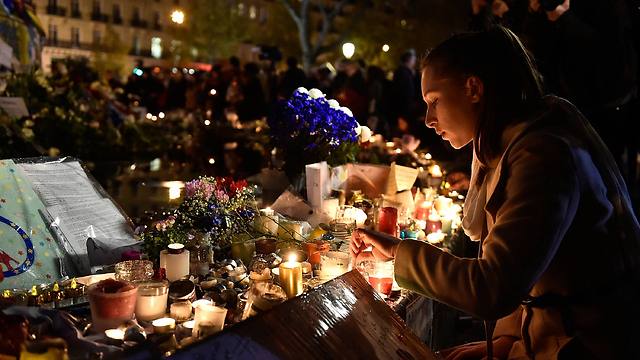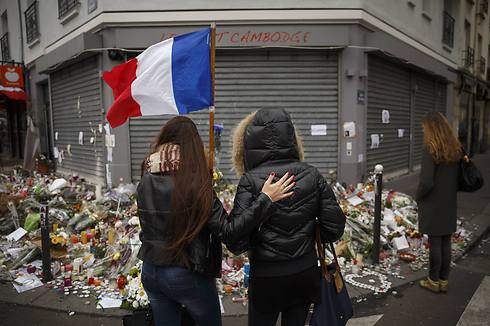Salah Abdeslam, still on the run, drove thousands of miles across Europe to buy gear, rent cars, book rooms, scout locations and move people into place for the Nov. 13 carnage that killed 130 people.
At the height of Europe’s vacation season, a young man with French and Belgian IDs caught a ferry from southern Italy to Greece. He and a companion returned to Italy four days later, then hit the road for France. The beginning of August marked the first known steps in a mission that crisscrossed Europe – taking advantage of the continent’s open borders – to lay the groundwork for the Paris attacks.
Over the next three months, authorities believe Salah Abdeslam drove thousands of miles across Europe to buy gear, rent cars, book rooms, scout locations and move people into place for the Nov. 13 carnage that killed 130 people and wounded hundreds. Sometimes his older brother helped out. At least twice he was accompanied by a friend from Brussels’ Molenbeek neighbourhood, where many of the attackers had roots.
Abdeslam’s itinerary across Europe, pieced together by The Associated Press, shows the crucial role he played in the Nov. 13 attacks on France’s national stadium, Paris bars and restaurants, and the Bataclan concert hall. It also shows how extensively the attackers planned for the assault, which brought together three teams of suicide bombers and gunmen largely bound by common language, blood ties, childhood friendships, delinquency and alienation.

Of the 10 dead attackers and accomplices, three remain unidentified, their DNA yielding no matches in any criminal database. Two more attackers, including Abdeslam, are still on the run.
Crisscrossing Europe
In early September, a month after he travelled 1,000 miles along the length of Italy on his way home to Belgium, Abdeslam was back on the road.
He took a rental car twice in September to Budapest, 900 miles to the east, according to Belgium’s federal prosecutor. At the train station in Budapest, he picked up two men. Hungarian authorities say the men were among the thousands of refugees travelling up through the Balkans in search of a new life in Europe, but that the two refused to register their asylum claims.
On Sept. 9, apparently on one of the return trips, he was stopped at a checkpoint on the Austrian border in a rental Mercedes, accompanied by two people with Belgian ID cards that later turned out to be fake, the Belgian federal prosecutor said. He was waved on through.

A month later, far to the south in Greece, two more men with Syrian passports joined the throngs of migrants passing through. There was no time to look closely at their travel documents, which French authorities now believe were also fakes. Weeks later, these two men would blow themselves up in Paris.
As the two future suicide attackers travelled north, Abdeslam is believed to have journeyed from his home base in Brussels to the Paris suburbs to buy detonators from a store that specializes in fireworks, according to a French intelligence official, who like most authorities linked to the investigation was not authorized to divulge details of the investigation and spoke only on condition of anonymity.
Under his own name, Abdeslam rented the suburban Paris rooms that would be the departure points for the attack teams. Two would drive in from Bobigny in the north, and one from Alfortville in the south, to converge on their targets.
Abdeslam sometimes had help from his older brother, Brahim, notorious among his friends for his daily routine of hashish and betting on cards. Around the time Salah was buying detonators and renting rooms, Brahim’s friends and a surviving brother say, the elder Abdeslam had taken up regular prayer in Molenbeek, known as a haven for Islamic State recruiters. He continued to indulge at least some of his vices as well.

Zaid, a player in the daily card game, was with Brahim the night of Nov. 10, two nights before the attack cars wheeled into Paris from Brussels at precise, 10-minute intervals.
“There was nothing unusual about him. He talked about mundane things,” said Zaid, who did not want his last name used for fear of reprisals. “If I knew what he planned to do a few days later, I would have called the police.”
On Nov. 11, Salah Abdeslam and a small-time criminal, Mohamed Abrini, pulled into a gas station north of Paris in their newly rented Renault Clio, perhaps for a final reconnaissance mission. At around 3 a.m. on Nov. 12, the two men were again in the car together, according to the Paris prosecutor. That’s the last time Abrini, whose brother died in Syria in 2014, was spotted. He and Salah are the lone fugitives linked to the attacks.
Ties of Blood and Crime
All the attackers and accomplices so far identified were raised in Europe, native French speakers with roots in the marginalized immigrant communities of France and Belgium. Minor players, like the man who rented a room to the attacks’ mastermind, Abdelhamid Abaaoud, have a degree or two of separation in an underworld of drugs, fraud and theft.
Brahim Abdeslam had put a conviction for stealing ID cards behind him and opened a cafe, appearing “to be on the right road,” said his lawyer, Olivier Martins. But less than two weeks before the attacks, the cafe was shut down over concerns that drugs were being sold there.
The Abdeslam brothers were close to Abaaoud, another Molenbeek resident who turned to jihad after a series of convictions for low-level crime.

Abaaoud’s younger cousin, Hasna Ait Boulhacen, was herself caught up in the underworld. She was the target of a drug-trafficking investigation in France that failed to reveal her ties to Abaaoud, a man considered to be among Europe’s most dangerous fugitives even before the Nov. 13 attacks, according to French investigators. It was to Ait Boulhacen, Abaaoud’s first cousin on his mother’s side, that the young man turned to for shelter as the attackers he directed transformed Paris into a city of blood and chaos.
Ait Boulhacen, 26, took up the veil this year after a troubled youth of alcohol and violence, according to a Samir Kilouli, a former grocer in the apartment bloc who knew the family.
“She took up with the bearded ones,” Kilouli said, using the French colloquialism for fervent Muslim men. “For sure they know how to spot the weak ones.”
The Bataclan team was made up of two Frenchmen who left for Syria in 2013, Ismael Omar Mostefai and Samy Amimour, whose father himself went to Syria to try to persuade him to come home, and a third unidentified attacker.
The squad of suicide bombers at the Stade de France included the youngest of the attackers, 20-year-old Bilal Hadfi, and the two others who entered Europe by way of Greece, with apparently forged passports.
The team of three men that attacked bars and restaurants included Abaaoud, an explosives-rigged Brahim Abdeslam and another unidentified man. Salah Abdeslam, who is also believed to have been wearing an explosives vest, may have dropped off the bombers at the stadium before heading into Paris.
In all, 130 people died in the brutality unleashed by the attackers. Most were killed in a time window from 9:17 p.m. – when the first suicide attacker detonated his vest at the stadium – to 9:53, when the last explosion went off. The plan that was months in the making had unfolded in matter of minutes.
The Aftermath
Abaaoud’s phone signals indicate he ditched his car in the eastern outskirts of Paris and returned by metro to the city centre, now filling quickly with police, ambulances and panic, according to the French prosecutor.
Abaaoud was not the only attacker to abandon his attack vehicle. In northern Paris, Salah Abdeslam parked one of the rentals in Paris’ northern 18th arrondissement, bought a SIM card and immediately phoned two friends in Brussels, asking them to drive through the night to fetch him. Authorities said an explosives vest believed to be his was found discarded in the trash. The Islamic State claim of responsibility, released about 12 hours later, specified not just attacks on the stadium, Bataclan and bars and restaurants, but also one in the 18th arrondissement that never happened.
Ait Boulhacen, meanwhile, had gotten a tense call from her cousin. He needed a place to stay. Fast.
She in turn reached out to her drug dealer, according to French police officials. Here, the world of Islamic extremism and petty crime intersected once more. Ait Boulhacen’s contact reached out to Jawad Bendaoud, a street thug and petty criminal convicted in the accidental killing of his best friend over a stolen cellphone, according to judicial officials.
On Nov. 17, someone using the same fake ID as Salah’s travelling companion back in September wired 750 euros to Ait Boulhacen from Brussels, according to the Belgian federal prosecutor. The cousins reunited on a deserted industrial side road, then made their way late that night to an apartment building in Saint-Denis, a stone’s throw from the stadium. As day broke, they were killed in a hail of gunfire and explosions. Bendaoud was arrested, protesting as he was led away on live television that he was just “doing a favour.”
Ait Boulhacen’s mother gave a terse comment to The Associated Press: “Hasna is dead. That’s all I have to say.'”
As for Salah, he was on the road again.
As reported by Ynetnews
